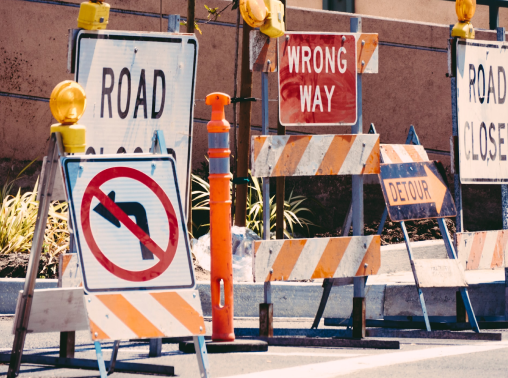

Reporting hazards and other issues on roads and shared paths is one of the easiest ways to help keep your local area bike-friendly.
Below is a guide to reporting a hazard. The Department of Transport have a reporting function for incidents and hazards. Follow this link to see the process for reporting and incident or hazard. (Reporting an incident or hazard (transport.wa.gov.au)
Follow this link for the online hazard report form Online hazard report form (transport.wa.gov.au)
Some examples of hazards that should be reported are:
Being polite and respectful will help ensure that the bike riding community is viewed as being helpful and constructive. Please keep to the facts, without emotion to help with the resolution of the issue.
If you are reporting a small maintenance issue (e.g. tree pruning,
small pothole, sweeping) this may get resolved straight away, larger requests may require some patience. Larger requests that may be expensive to resolve and may take time to budget and plan. Allow a reasonable amount of time for a response (10 business days) before following up and choose only one hazard at a time (the most important one).
When submitting a report, provide as much information as you can so that the agency you are reporting to knows exactly what you are reporting and where it is. This will save you needing to answer follow up questions. For this reason, it is best to email your report so you can attach photos and a marked (google) map to give staff as much information they need to action your report.

Preparing a hazard report
Our recommendation is to email your report as this will allow you to attach the relevant information to make an efficient report and reduce the need for the local government to ask follow up questions.
Once you have emailed your report to the relevant local government, take note of the report number if one is provided (usually an auto-reply) and follow up if the hazard has not been resolved in a reasonable time (be fair).
If you have contacted the local government, and have followed up after 10 business days and you still haven’t received a response or you are unsatisfied with the response, please forward your correspondence/email chain to WestCycle to review and determine next steps info@westcycle.org.au
By making these reports you tell your local government that cycling is important in your community and you will also feel the satisfaction that you have played your part in improving cycling in your local area and the entire cycling community will benefit from your contribution.

Elected Director | Off Road
Tim has been in senior leadership and strategic development roles for more than twenty years. He is currently Director of Executive Education in the School of Business and Law at Edith Cowan University and is a past Assistant Commissioner and General Manager in the public service. He is an Accountant (FCPA) and sits on the Divisional Council of CPA Australia.
Tim has been involved in racing mountain bikes, BMX and triathlon for many years, both as a father of two children who race and as a past and current bike racer. Tim is the current over-50 State Champion in downhill mountain biking. He is also a very regular and enthusiastic transport cyclist; frequently seen in a suit and tie riding to meetings in the city on a mountain bike.

Independent Director
Helen is a Town of Cottesloe councillor and is the current Chair of WestCycle’s Transport Advisory Group.
A medical doctor, Helen is a strong active transport advocate with a focus on health outcomes and social well-being.